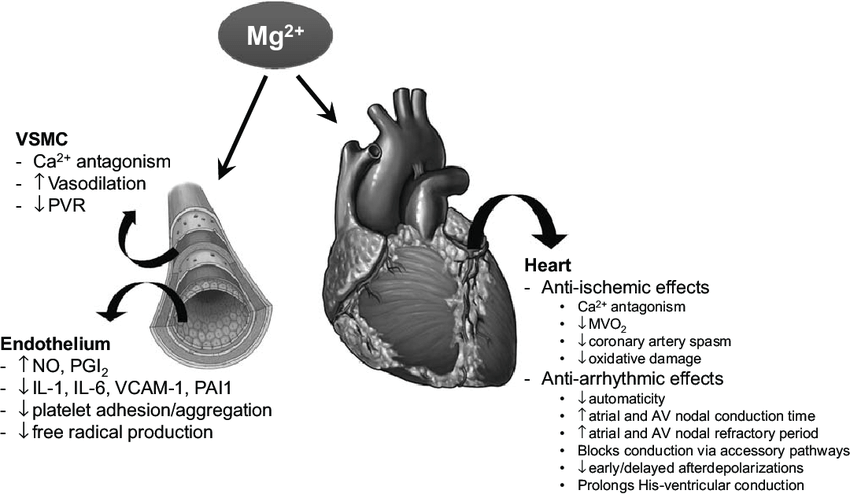Magnesium, an elemental mineral of paramount importance, orchestrates a multitude of physiological processes, including nutrient assimilation, bioenergetic synthesis, neuromuscular coordination, and genomic replication. A considerable proportion, exceeding fifty percent, of the body’s magnesium reserves is entrenched within the osseous matrix, with the remainder dispersed throughout the soft tissues.
Since the endogenous synthesis of magnesium is non-existent, external acquisition via alimentary sources or supplementation becomes imperative. Magnesium-rich edibles encompass verdant leafy vegetables, fortified cereals, seeds, nuts, and select dairy derivatives.
Alarmingly, statistical estimates indicate that approximately half of the US populace falls short of the recommended dietary intake of magnesium. Augmenting dietary consumption with magnesium supplements can bridge this nutritional gap effectively, according to health.com.
Magnesium demonstrates therapeutic versatility, contributing to the mitigation and management of conditions such as cardiovascular ailments, skeletal fragility, and cephalalgia.
1. Cardiovascular Health and Magnesium’s Role
Magnesium exerts a vasodilatory influence, facilitating the expansion of blood vessels and fostering reductions in arterial tension. This attenuation of blood pressure diminishes susceptibility to cardiovascular maladies and cerebrovascular incidents.

Empirical findings, however, suggest a modest impact on blood pressure. Doses ranging from 243 to 973 milligrams daily yield an average diastolic reduction of merely 2.2 mmHg. Individuals grappling with hypertension might experience enhanced outcomes when combining magnesium with antihypertensive pharmaceuticals, though the mineral alone is unlikely to engender substantial change.
The US FDA acknowledges the inconsistency in evidence linking magnesium intake to hypertension risk reduction. Regulatory guidelines stipulate that consumables claiming antihypertensive benefits must deliver no less than 84 milligrams of magnesium per serving and cap supplement dosages at 350 milligrams.
Preliminary studies hint at a correlation between elevated magnesium levels and diminished risks of cardiac disease, including sudden cardiac arrest and strokes. Nevertheless, comprehensive research is requisite to delineate magnesium’s definitive role in cardiovascular health, as per health.com.
2. Glycemic Regulation and Diabetes Mitigation
Dietary magnesium intake inversely correlates with diabetes prevalence, attributable to its integral role in glucose metabolism. Deficient magnesium levels exacerbate insulin resistance, thereby amplifying type 2 diabetes susceptibility.
Research posits that a daily increment of 100 milligrams in magnesium intake correlates with a 15 percent reduction in diabetes risk. Contradictory findings, however, underscore the necessity for further inquiry into the mineral’s glycemic regulatory capabilities.
The American Diabetes Association refrains from endorsing magnesium supplementation as a panacea for glycemic control, citing insufficient corroborative evidence.
3. Gastrointestinal Mobility: Addressing Constipation
Magnesium is a cornerstone component in many laxatives, leveraging its osmotic properties to alleviate constipation. Variants such as magnesium citrate, hydroxide, oxide, and sulfate are employed judiciously to avert adverse reactions. Initiation doses typically range between 400 and 500 milligrams, contingent upon individual response and tolerability.
4. Osseous Integrity and Magnesium’s Contribution
Magnesium is integral to osteogenesis and the modulation of bone resilience. Epidemiological studies reveal heightened osteoporosis and osteopenia risks among individuals with magnesium insufficiency.
Particularly in postmenopausal women, magnesium supplementation has demonstrated efficacy in curbing bone turnover and mitigating skeletal degradation. Despite these findings, further investigation is essential to ascertain optimal dosages.
5. Neurological Relief from Migraines
Magnesium’s capacity to mitigate migraine frequency is attributed to its role in vascular relaxation and neurotransmitter regulation. Although findings are heterogeneous, some investigations advocate doses of up to 600 milligrams daily for migraine prophylaxis. Such regimens, exceeding standard recommendations, necessitate medical oversight.
6. Mental Health and Cognitive Equilibrium
Magnesium’s impact on mental health extends to alleviating stress, anxiety, and depressive symptoms. Its influence on neural signaling underscores potential therapeutic applications in neuropsychiatric disorders, including ADHD and schizophrenia. However, limited data preclude definitive conclusions, according to health.com.
7. Sleep Optimization
Magnesium has garnered attention as a sleep aid, purportedly enhancing circadian rhythm stability and sleep quality. While some evidence supports its utility in ameliorating sleep disturbances, further exploration is warranted to substantiate these claims.
Potential Risks and Drug Interactions
Excessive magnesium intake, surpassing 350 milligrams daily from supplements, can provoke adverse effects such as gastrointestinal distress and cardiac irregularities, particularly in individuals with renal impairment.
Interactions with medications, including bisphosphonates, antibiotics, diuretics, and high-dose zinc, necessitate vigilance. Consulting healthcare professionals ensures the safe and effective integration of magnesium supplements into existing regimens.





